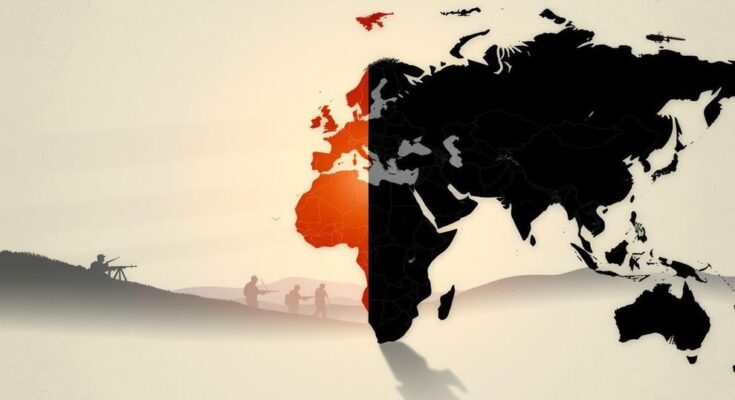The report from African Narratives for Strategic Studies details the Sudanese army’s significant territorial gains in early 2025, including key locations such as Wad Madani and Khartoum Bahri, and discusses their implications for the evolving conflict and political landscape in Sudan.
A recent report from African Narratives for Strategic Studies highlights the significant gains achieved by the Sudanese army in early 2025 amidst ongoing conflict. The report, titled “Military Situation Assessment in Sudan 2025”, provides an analysis of key territorial recaptures and examines their implications for the future of the crisis. Despite the dire humanitarian situation, the army’s recent successes have the potential to alter the conflict’s dynamic considerably.
The analysis details the Sudanese army’s reclamation of important locations: the capital of Al-Jazeera State, Wad Madani; strategic advances in Khartoum Bahri; the retaking of Umm Rawaba in North Kordofan; and securing the Jelei refinery, the nation’s largest oil facility. These victories indicate a shift in control over critical infrastructure and territory previously occupied by the Rapid Support Forces (RSF).
Assistant Commander-in-Chief Yasser Al-Atta remarked, “Khartoum Bahri has become clean and free of rebellion, from the Jelei refinery in the north to the Mak Nimr Bridge in the south.” This assertion reflects the army’s confidence in holding key urban territories and securing strategic routes, facilitating access to major locations such as the Republican Palace.
Moreover, the report highlights the strategic significance of these gains: control over Khartoum Bahri mitigates threats to Omdurman and reinforces the army’s position in the Al-Jazeera region. While acknowledging that the RSF continues to pose serious challenges and the humanitarian crisis persists, the report suggests that the developments could be pivotal in determining the conflict’s future trajectory.
The head of the Sovereignty Council, Abdel Fattah Al-Burhan, is advocating for the establishment of a transitional government to decisively defeat the RSF. This determination to leverage their military successes emphasizes the potential for a shift toward a more stable political landscape. The international community must now contemplate the ramifications of these changes in the context of an evolving crisis in Sudan.
The conflict in Sudan, which has persisted for several years, has led to severe humanitarian consequences and the displacement of millions. Amidst this turmoil, the Sudanese army has recently made notable territorial gains that could shift the power balance in the ongoing war. Understanding these dynamics is crucial for addressing the country’s pressing challenges and evaluating future prospects for peace and stability.
The recent territorial gains by the Sudanese army, as detailed in the report, represent a significant development in the ongoing conflict. While the situation remains precarious, these advancements may influence the military landscape and potential political resolutions. Ongoing scrutiny from the international community is essential in light of these changes to promote informed discourse surrounding Sudan’s future.
Original Source: www.dailynewsegypt.com




